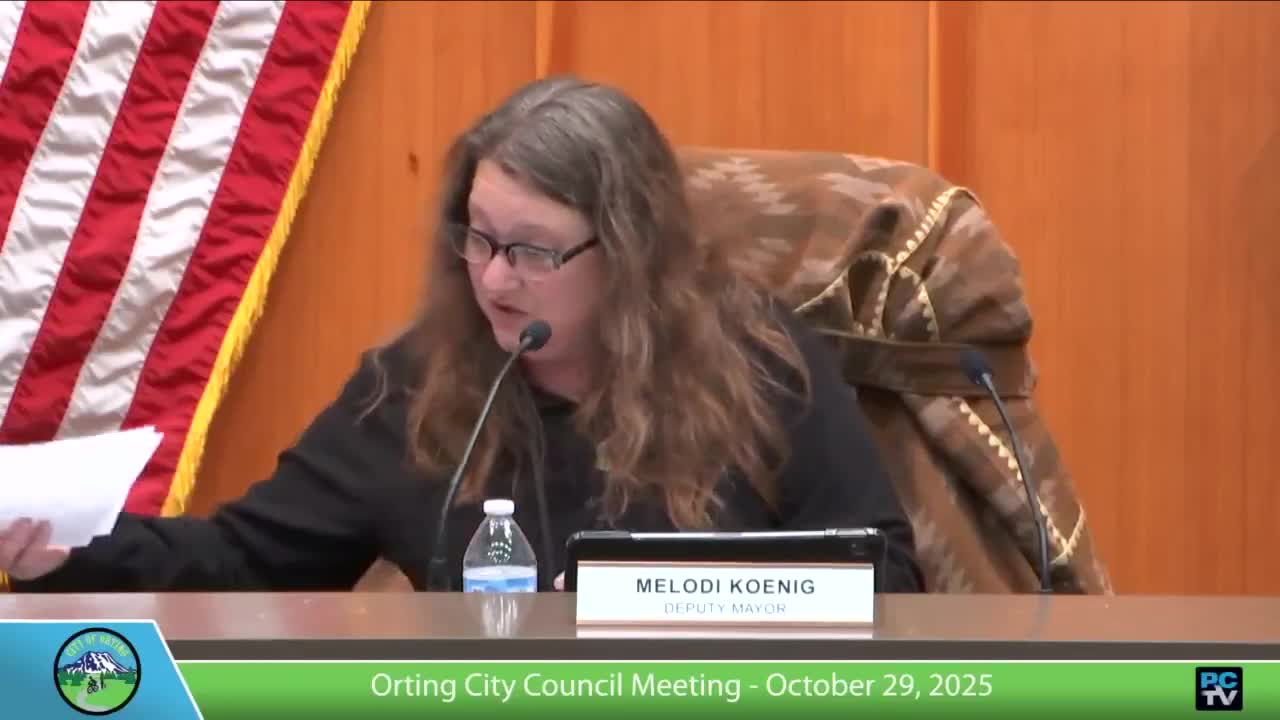Orting council discusses lagoon solids removal plan; bio‑bags and trucking proposed as lower‑cost alternative
Get AI-powered insights, summaries, and transcripts
Subscribe
Summary
Councilors reviewed a staff plan to remove wastewater lagoon solids by pumping sludge into dewatering bio‑bags placed on a protective berm, allowing liquids to drain, then hauling the dewatered solids for disposal.
The Orting City Council on Oct. 29 reviewed a staff memo outlining an interim method to remove solids from the city’s wastewater lagoon using filter bags (commonly called bio‑bags), temporary berm placement and subsequent trucking and disposal.
Councilmember Moore summarized the memo: crews would pump sludge into permeable bags, place them on an engineered berm, allow liquids to drain back to the lagoon and then truck the dewatered solids to an approved disposal site. Councilmember Tracy, after a site visit the day of the meeting, said the bags would be left to drain for a period she described as “about six months” before hauling the solids away; she reported site staff estimated roughly $100,000 in material and ancillary costs for the bagging and protective coverings.
Council members noted a prior council allocation of $500,000 (approved last December) intended for sludge removal and questioned whether that authorization would be sufficient to cover all costs once trucking, disposal and any required permitting or Department of Ecology coordination were included. A councilmember asked whether the berm liners and protective covers would prevent leachate from escaping to surrounding soils; Tracy and other members said the temporary installations would include membranes beneath and above the bags so drained liquids flow back into the lagoon rather than offsite.
No formal policy or expenditure motion was taken at the meeting. Council asked staff to return with firm cost estimates, a schedule for hauling and disposal options, and any required state approvals. Councilmembers emphasized the need to present full cost proposals for ratification before committing funds beyond the prior authorization.
Council members expressed interest in minimizing both cost and environmental risk; several noted the high cost estimate staff previously provided for full lagoon reconstruction and said the bagging approach is a lower‑cost interim alternative being explored.
